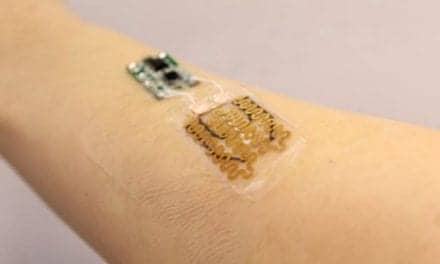Study participants who wore the Leaf System wearable patient sensor were 73% less likely to develop a hospital-acquired pressure injury, researchers suggest.
Conducted by researchers at Stanford Health Care, the study was published recently in the International Journal of Nursing Studies.
The study included more than 1,200 patients, each of whom was randomized to the Control group, or to the Treatment group. Those in the Treatment group wore the Leaf sensor to ensure that they were repositioned with sufficient frequency and quality.
The Leaf sensor is designed to continuously monitor patients’ position and activity, regardless of whether they are in bed, a chair, or ambulating, and to notify providers if repositioning is required to prevent a pressure injury.
Pressure injuries are among the nation’s most common preventable facility-acquired conditions. They are also one of the key outcomes measures that factor into hospital quality metrics, which are being increasingly tied to reimbursement, according to a media release from Leaf Healthcare Inc.
“This large, randomized, controlled trial confirms what has been demonstrated in smaller studies and is consistent with real-world customer experience,” says Leaf Healthcare CEO and co-founder Barrett Larson, in the release. “This study is an important step toward redefining the standard of care for pressure injury prevention.”
[Source(s): Leaf Healthcare Inc, PR Newswire]



